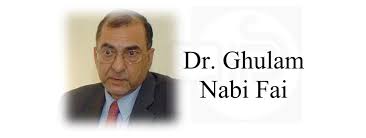“October 27: A Call for Justice and Recognition in Kashmir’s Ongoing Struggle”
Ayesha Arshad
 October 27 holds deep significance for the people of Kashmir, symbolizing decades of suffering and struggle. On this day in 1947, Indian military forces entered Kashmir, a move viewed by Kashmiris as the beginning of their long-standing oppression. What transpired then was a conflict that continues to cast a shadow over the region, leaving generations of Kashmiris yearning for peace, dignity, and the fulfillment of promises made to them.
October 27 holds deep significance for the people of Kashmir, symbolizing decades of suffering and struggle. On this day in 1947, Indian military forces entered Kashmir, a move viewed by Kashmiris as the beginning of their long-standing oppression. What transpired then was a conflict that continues to cast a shadow over the region, leaving generations of Kashmiris yearning for peace, dignity, and the fulfillment of promises made to them.
The backdrop of this military intervention is the crucial yet often overlooked Muslim Conference Resolution of July 19, 1947. This resolution reflected the aspirations of Kashmir’s majority Muslim population, calling on Maharaja Hari Singh to accede to Pakistan. Their voices, however, were silenced as the Maharaja sought India’s intervention under the pretext of an invasion by tribal militias. The ensuing conflict and India’s military presence set in motion a series of events that would place Kashmir at the heart of a geopolitical struggle, one that remains unresolved.
In the aftermath of the intervention, the United Nations became involved, with India claiming the legitimacy of its actions under the so-called Instrument of Accession. The UN, however, called for a plebiscite, a promise that Kashmiris would decide their future through a fair and free vote. The resolution for a plebiscite still stands, unfulfilled after more than seven decades, as successive Indian governments have failed to honor this commitment. Kashmiris, with every passing year, are reminded of the broken promises and the increasing erosion of their rights.
One of the darkest moments in this history is the Jammu Massacre, a harrowing episode that saw thousands of Muslims killed, their lives forever lost to the violent communal divide that continues to scar the region. The massacre, though often glossed over in the broader narrative, remains a wound that has yet to heal. The bloodshed of 1947 fuels the ongoing resentment and the desire for justice among Kashmiris. Their plea is not for vengeance, but for recognition and for the truth of their suffering to be acknowledged on the world stage.
Politically, India’s stance has shifted dramatically over the decades. While initially agreeing to UN resolutions and the possibility of a plebiscite, India’s rhetoric has since shifted to one of Kashmir being an “integral part” of its territory. This change is not just a matter of words; it symbolizes a betrayal of the Kashmiri people’s hopes. They were promised a say in their future, yet they have been left in a state of limbo, caught between conflicting claims and political maneuvers that have little regard for their aspirations.
The events of August 5, 2019, further compounded this betrayal. With the revocation of Jammu and Kashmir’s special status, Kashmiris found themselves stripped of the limited autonomy they had. The BJP-led Indian government’s unilateral and illegal decision was met with widespread condemnation and concern, not only within occupied Jammu and Kashmir but from international observers as well. The fear of demographic changes, aimed at disempowering the Muslim majority, looms large. What followed was a surge in human rights violations, documented extensively by various international organizations. Extrajudicial killings, arbitrary detentions, and mass surveillance became the norm, as the Indian state sought to tighten its grip on the region.
The human cost of these violations is staggering. Families torn apart by violence, young people detained without cause, and entire communities living under the constant threat of surveillance—this is the reality of life in Kashmir today. The humanitarian crisis in the region cannot be ignored any longer. Independent investigations into these atrocities are not only necessary but urgent. Accountability for these violations must be pursued to restore even a semblance of justice.
As the world marks another October 27, the international community must recognize the severity of the situation in Indian illegally occupied Jammu and Kashmir. This day should not only be a moment of mourning but also a rallying cry for the global powers to finally act on the promises they once made. The implementation of United Nations Security Council resolutions is crucial for any resolution of the Kashmir conflict. For too long, Kashmiris have been denied their right to self-determination, and the world has turned a blind eye to their suffering.
In conclusion, October 27 serves as a solemn reminder of the Kashmiri people’s unrelenting struggle for justice, peace, and dignity. It is a call for the world to acknowledge the humanitarian crisis in the region and to stand in solidarity with the Kashmiri people. Their pain cannot continue to be ignored. The time for action is now before another generation grows up under the shadow of conflict, deprived of the hope that their future might be different from their past.
Write is student of International Relations at NDU and intern at KIIR.








